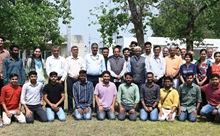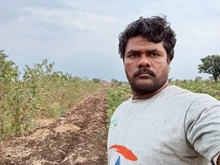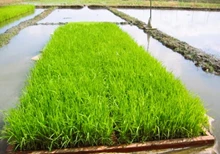
Zydex specialty chemicals company presents a new initiative ‘Project Prakalp Sanjivani’ to enhance the vitality, organic nature, and fertility of the soil. Tested and proven in a large area, farmers are able to practice 100% chemical fertilizer-free farming in the first crop cycle. The count is close to 40,000 farmers across the country.
Dr. Ajay Ranka, the company's Chairman and Managing Director, explained that this innovative Zytonic technology under Project Prakalp Sanjivani has been modified based on various experiments conducted over the past seven years, while numerous organic fertilizers have been made available to farmers.
Zydex began with Mycorrhiza and evolved to introduce Zytonic NPK Consortium, Zytonic Zinc, and Zytonic Potassium. The flagship solution, Zytonic Godhan bio-digests cow dung through fungal consortia, making cattle dung into humus-rich, airy, odourless manure. This enhances the bioactivity, organic matter, and fertility of the soil.
Zytonic technique, through experiments, has demonstrated soft, aerated, porous, and fertile soil, providing a suitable quantity of beneficial microorganisms in an optimum proportion. Achieving 100% organic farming has always been challenging, and agricultural production has been decreasing without chemical fertilizers. However, in the past few months, experiments conducted on approximately 500 acres across different states and crops have proven that we can achieve equal or higher yields as compared to chemical fertilizer-free farming. The experiments have shown that the use of Zytonic technology not only increases crop yield but also enhances plant growth, vigour, productivity, and quality, i.e., increased nutritional value while reducing the need for chemical sprays and keeping plants healthy. Eventually reducing the contamination of food crops, which is a significant achievement.
Through this initiative, Zydex is bringing another innovative change, which will reduce the use of pesticides, extending their effectiveness. Zydex has also developed a unique formulation of natural neem oil, providing growth apart from pest repellence to the crop. This helps in maintaining biological equilibrium through the enhanced population of friendly biology in the crop.
Zytonic Active, based on nano-encapsulation technology, enhances the effectiveness of pesticides and reduces costs by up to 50%. It also reduces the active chemical requirement and provides long-lasting protection to plants. As a result, the plant grows more rapidly.
In addition to this, Zydex has also introduced Zytonic Mist Control, which ensures convenience and safety for agricultural labourers, who spray pesticides. Through this technique, the fine droplets or mist do not disperse in the air but fall directly on the leaves, making it easier for the labourers to spray without getting affected and reducing pesticide damage. Due to its ability to control fine mist, it is also called mist control technology. Similarly, Mycorrhiza provides strength to plants to absorb nutrients and also provides nutrients to plants through NP and K, enhancing both organic powers.
Zytonic technology proves to be beneficial in increasing the organic matter content of the soil along with carbon elements while using less water in farming, resulting in approximately 40% water savings. Due to well-ventilated soil for 12 months, the soil easily absorbs rainwater, acting as a reservoir of water in the subsoil, which helps in increasing the water level.
In this way, for the first time in the world, in the very first crop season, we will be able to realize the concept of "100% chemical fertilizer-free farming" and achieve 100% organic farming, producing nutritious, high-quality grains, fruits, and vegetables through organic farming methods, benefiting farmers and consumers alike.











